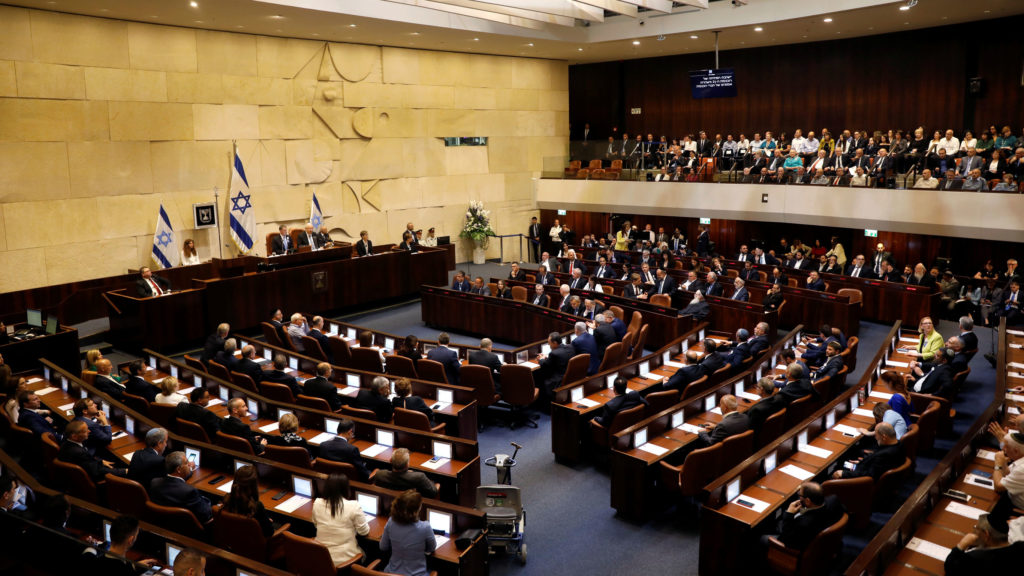Australia/Israel Review, Featured
Editorial: A democratic impasse
Dec 18, 2019 | Colin Rubenstein

For months now, Israeli defence officials have been required to hold meetings with Treasury officials on a daily basis. The purpose of these meetings is, astonishingly, to keep the IDF running for another 24 hours.
Alex Fishman, military affairs reporter for the newspaper Yedioth Ahronoth, has revealed how Israel’s failure to form a government for over a year has created an appalling situation whereby the IDF has been surviving on drip-feed.
“The IDF has no agreed budget for 2020,” Fishman wrote. “For every expenditure of more than a million shekels – almost zero in terms of the defence budget – the IDF needs the approval of the Treasury.
“In a meeting that takes place every afternoon, defence officials present the Treasury a list of projects in order of priority. The Treasury releases the money sparingly, making short-term decisions aimed at keeping existing projects alive.” Meanwhile, new projects cannot be funded at all.
Given the range of threats to Israel’s security – from the Iranian nuclear program and Teheran’s military build-up in Syria, to the missile and rocket arsenal targeting Israel from Hezbollah in Lebanon and Hamas and Palestinian Islamic Jihad in Gaza – this state of affairs whereby no serious forward planning and preparation can occur is obviously a recipe for potential disaster. But it doesn’t stop there.
Key diplomatic posts have been left unfilled in embassies such as those in Moscow, Ottawa and Cairo.
A caretaker government cannot pass a budget, so the ministries simply receive the same funding they received in the last budget. Israeli analysts have estimated that this actually translates to an effective cut of NIS 20 billion (A$8.44 billion) across the board. This untenable situation has affected a wide range of government services, most alarmingly health care – where money has dried up for subsidised medications, and specialists in emergency rooms – but also transportation infrastructure and education.
The standing of Israel’s international economic reputation is also in jeopardy, with the credit rating agency Moody’s warning recently that “the failure to form a new government… [would] present a risk to Israel’s credit profile.”
All these effects are the result of the extended refusal or inability of Israel’s party leaders to make the necessary compromises to form unity governments, after inconclusive elections last April and September made it clear broad unity coalitions were the only way forward.
Most party leaders have taken the stances that led to the current impasse with understandable, sensible or even laudable intentions. Yet these intentions do not change the fact that the greater national good demands that some of these stances will have to be compromised.
On Nov. 20, after incumbent PM Binyamin Netanyahu of Likud and chief challenger Benny Gantz of Blue & White had each been given a chance to form government and failed, Israeli President Reuven Rivlin pointed out the real imperative.
He reminded lawmakers that their political fate was no more important than the fate of the “old woman in the hospital, of children in special education, of those killed in violence within Israel’s Arab community, of the residents of Israel’s south, Jews, Arabs, ultra-Orthodox and secular, those in need of protection, and of women in need of shelter.”
Regrettably, Rivlin’s words were not heeded, and Israelis are being dragged back to the polls again on March 2 for the third time in under a year. Yet there is no sign that a third election will break the stalemate.
Indeed, Attorney-General Avichai Mandelblit’s Nov. 21 decision to indict Netanyahu for bribery, fraud and breach of trust, along with Netanyahu’s stated resolve to remain in office while fighting the charges, has only sharpened the political divide between the parties who want to continue to cooperate with Netanyahu during the legal proceedings, and those who refuse to do so.
The key to Israel’s remarkable success story has not been through strength or determination alone – it also derives from the humility of leaders like Ben Gurion, Eshkol, Meir, Begin, Rabin, Sharon and others, who genuinely saw themselves as servants of the Zionist project and the Jewish people. They ultimately placed country ahead of politics, party and personal gain.
Israel’s unprecedented current governmental impasse inevitably must draw observers to proposals, which have long been shelved, for reforms to the Israeli political system. Israel’s pure proportional system is laudable in terms of its unadulterated democracy and ability to give a significant political voice to all sectors of society. However, the question must be asked – does that system alone remain workable in providing stable, effective government given the changing nature of democratic societies in the third decade of the 21st century?
For it must be acknowledged that Israel’s long political crisis is but one example of increasing discord and even dysfunction in liberal democratic political systems around the world over recent years.
Beyond Israel, an additional manifestation of the democratic malaise has been the British election of Dec. 12. The fact that Britain’s venerable Labour party could be, in effect, captured by radical fringe elements like the followers of current leader Jeremy Corbyn is a worrying sign in itself. That Corbyn remained a serious candidate to become prime minister of Britain even after revelation upon revelation about the scandalous institutionalised antisemitism crisis in his party – which he failed to adequately address – must shake one’s faith in the long-term robustness of liberal democratic systems across the world.
Democracy will survive because it must – no other political system can offer a similar level of civic engagement and social legitimacy. But leaders across the Western world – in the UK, in Australia, in Europe, in the US, and yes, in Israel – need to really internalise their profound responsibility, not only to their own political program and partisan needs, but to helping consolidate and preserve each of their own democratic systems in this time of escalating tensions and growing expectations.
Tags: Israel






